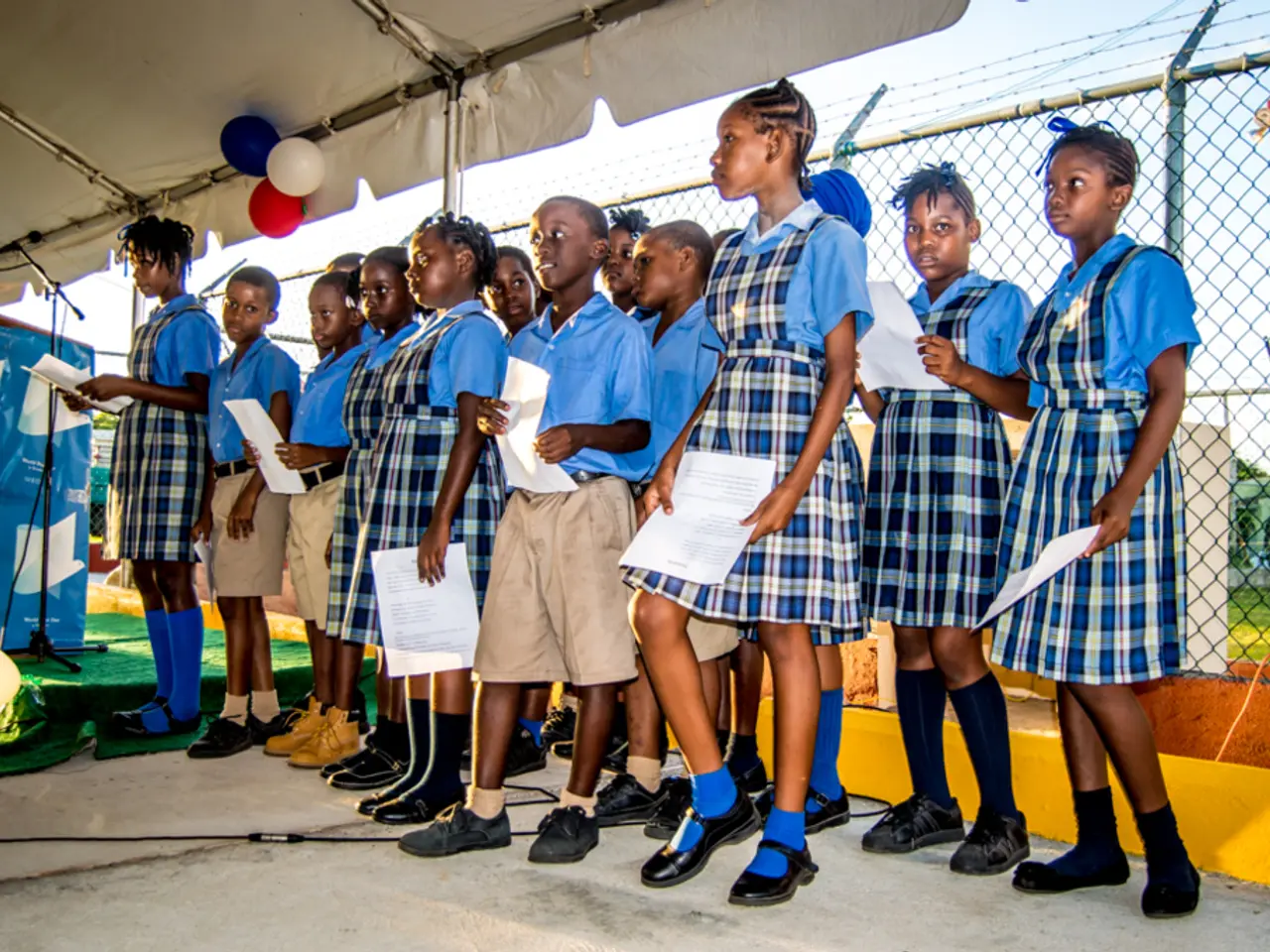Political alliances or election-driven collaboration in Scottish education sector questioned
Scotland's educational landscape is undergoing a significant change with the establishment of the Education and Childcare Joint Assurance Board (ECAB). This time-limited group, chaired jointly by the Cabinet Secretary for Education and the COSLA spokesperson for Children and Young People, was created to improve attainment, attendance, relationships, and behaviour in Scottish schools.
The first meeting of ECAB took place in April 2025, and the minutes are publicly available. The membership of the board consists mainly of representatives from the Scottish bureaucratic establishment, including two LA Chief Executives, two representatives of the Association of Directors of Education in Scotland (ADES), two representatives of Education Scotland, one COSLA official, and five senior civil servants from the Scottish Government.
The terms of reference for ECAB include considering key national and local level data, setting strategic priorities, and delivering improvements for the increasing number of children and young people identified as needing additional support for learning. However, the board's defensive attitude, as suggested by its agreement to include a general statement noting the increase rather than specific figures in its own documentation, raises questions about its transparency and accountability.
The quality of political and professional leadership in Scottish education has been a topic of discussion for many years. The role of senior civil servants in managing the process of policy development is worthy of close attention. Despite the Scottish Government commissioning reports to address these issues, its response has been slow and limited.
The Scottish educational establishment, over many decades, has been successful in resisting attempts to disturb its culture of complacency. This complacency has led to criticisms, including the attainment gap, teacher recruitment and retention, teacher workload, staff morale, provision for children with Additional Support Needs, pupil attendance and behaviour post-Covid, and the adequacy of Curriculum for Excellence.
Local authorities have been criticized for not adequately addressing the expectation gap between what communities need and what they can reasonably provide. The Audit Scotland report on additional support for learning showed the dramatic rise in pupils in this category and suggested that the Scottish Government and local councils need to fundamentally rethink the funding, staffing, and assessment of this policy.
The agreement between the Scottish Government and COSLA in late 2024 to improve outcomes for children and young people included restoring teacher numbers to 2023 levels and reducing class contact time for teachers. The agreement also increased funding for local government to £186.5 million, with additional funding of £28 million from 2025-26 to develop the Additional Support for Learning workforce.
However, the discussion on aligning national and local statistical data was useful, but aligning ECAB with five existing national bodies responsible for different aspects of educational policy was deemed unrealistic due to the time-limited nature of ECAB. Central government's flagship policies sometimes promise more than they can deliver, leaving local authorities struggling to meet unrealistic expectations.
The 2026 Holyrood elections will have education as a key issue. The task of challenging the system and bringing about real change may require a further decline in public confidence and trust. Scottish education already has too many bodies with overlapping remits, where members revisit the same issues without achieving very much.
In conclusion, the establishment of ECAB marks a significant step towards addressing the challenges in Scottish education. However, the board's defensive attitude, the slow response from the Scottish Government, and the system's resistance to change are obstacles that need to be overcome. The 2026 Holyrood elections may provide the opportunity for significant reforms in Scottish education.







